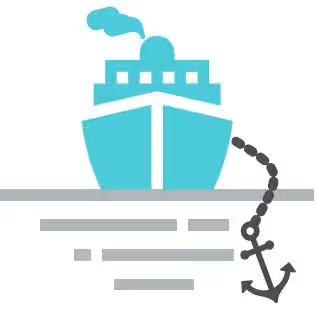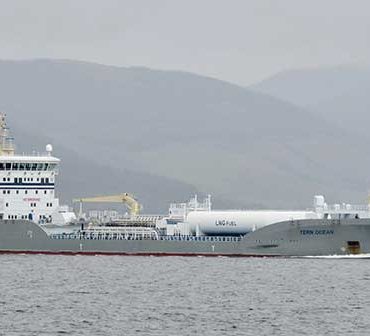Prevention of Rollover in LNG Ships
Liquefied Natural Gas (LNG) ships play a crucial role in the global energy supply chain by transporting large quantities of natural gas across vast distances. However, the safe transportation of LNG poses several challenges, one of which is the prevention of rollover. Flips refers to a sudden and violent mixing of stratified layers of Liquefied Natural Gas within the storage tank, potentially leading to rapid pressure increases and safety hazards. Here are discussed the causes of rollover, its potential consequences and the strategies for its prevention.
Prevention Strategies
Several strategies can be employed to prevent rollover in LNG vessels, focusing on both operational practices and technological solutions:
1) Careful Loading Procedures.
During loading, it is essential to minimize the introduction of Liquefied Natural Gas with significantly different temperatures and compositions. Using homogeneous cargo sources and blending strategies can help maintain a stable stratification within the tank.
2) Temperature and Density Monitoring.
Continuous monitoring of the temperature and density profiles within the storage tanks allows for early detection of stratification. Advanced sensors and monitoring systems can provide real-time data to the crew, enabling proactive measures to be taken before rollover conditions develop.
3) Mixing and Circulation Systems.
Some LNG boats are equipped with mixing and circulation processes that can homogenize the tank contents, preventing the formation of distinct layers. These ways are able to be activated periodically or when stratification is detected, ensuring even temperature and density distribution throughout the tank.
4) Predictive Modeling and Simulation.
Computational models and simulations are able to predict the behavior of Liquefied Natural Gas within the tanks under various conditions. These tools can help operators anticipate potential rollover scenarios and take preventive actions in advance.
5) Operational Guidelines and Training.
Implementing strict operational guidelines and ensuring that the crew is well-trained in rollover prevention techniques is crucial. Regular drills and training sessions can enhance the crew’s ability to respond effectively to stratification issues.
6) Pressure Relief Systems.
Ensuring that pressure relief systems are well-maintained and capable of handling sudden surges in boil-off gas is vital. These methods should be regularly inspected and tested to confirm their functionality in emergency situations.
Preventing capsize in LNG ships is essential for ensuring the safety of the vessel, its crew, and the environment. By understanding the causes of rollover and implementing comprehensive prevention strategies, the risks associated with this phenomenon can be significantly mitigated. Careful loading procedures, continuous monitoring, effective mixing systems, predictive modeling, and rigorous training are key components of a robust rollover prevention strategy. As the LNG shipping industry continues to grow, maintaining a focus on safety through the prevention of tilting will remain a top priority.

